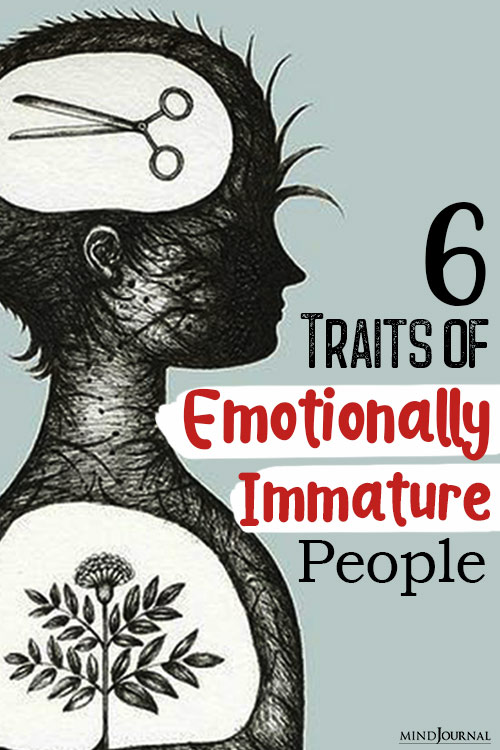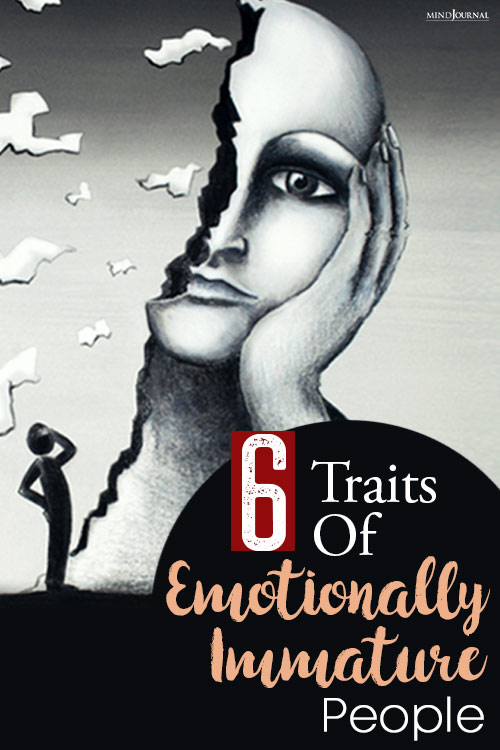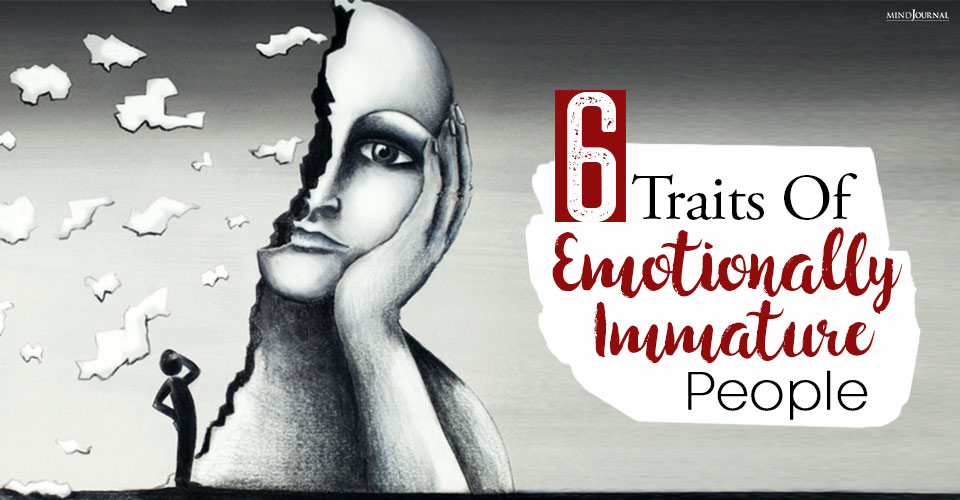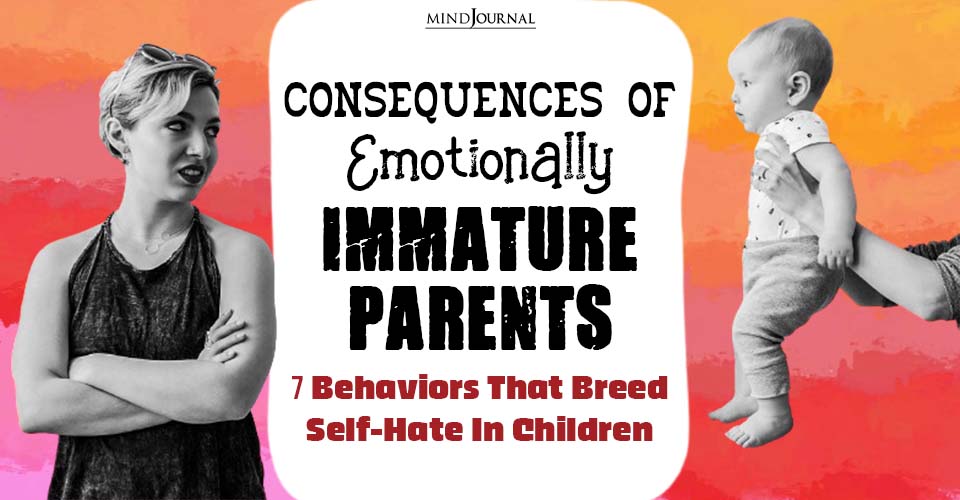Emotional immaturity is the inability to handle challenging situations and place blame to avoid responsibility. Emotional maturity is an essential aspect of building a relationship. But emotionally immature people often struggle with relationships.
Emotional immaturity can take several forms. It is the inability to understand the depth of one’s own feelings and a lack of empathy for their partner’s emotional experiences. We are all a blend of maturity and immaturity.
Sometimes we are wise and while sometimes we are ignorant. Being emotionally mature can be defined as the emotional strength that one possesses that helps to maintain a realistic and balanced behavior.
Hence, it is essential to understand and recognize the signs of emotionally immature people. Emotionally immature people tend to have common traits. These traits often interfere with the equations of the relationship. So identifying those traits will help to improve your relationship with your partner.
Here Are 6 Traits Of Emotionally Immature People:
1. They Are Egocentric
One of the signs of emotionally immature people is that they are egocentric. Immature people think that the entire world revolves around them. That is why you always have to baby them all the time. They are incapable of getting things done on their own. When you refuse to do them, your partner suddenly blames you for not taking care of them. This feeling comes from their “ego”.
Egocentric people tend to stick to what they believe is right even if it isn’t. There is no room for improvement in such situations. Being emotionally mature means breaking free from the chains of your ego. Hence when difficult situations arise in your relationship, it is necessary to take responsibility for one’s actions.
Related: How To Do Ego Work: 6 Steps
2. They Rarely Apologize
Emotionally immature people often struggle to apologize. They would rather place blame and avoid responsibility than apologize and fix everything. Immature people know that their behavior is incorrect. But they tend to deny it to themselves too. In order to avoid responsibility for what they said or did, they blame it on their partner to avoid feeling bad for it.
Emotionally mature partners are not afraid to ask questions and make necessary adjustments to improve the relationship. Maturing means realizing the fact that we are solely responsible for all the things we say and do. It also means learning to own our mistakes and making amends for them. It is also about knowing when to apologize and ask for forgiveness.
3. They Use Hurtful Words
Emotionally immature people often use hurtful words unnecessarily. They are not considerate about their partner’s emotions and often say things that are hurtful when they are upset. They have difficulty expressing their emotions. This is why they resort to such extreme behaviors. This behavior can significantly impact a relationship.
When experiencing this, it may be helpful to allow some space for your partner and write down your feelings in a journal. This will allow you to cool off and elaborate your emotions in a mature and responsible way.
4. They Have Troubled Relationships
One of the most common traits of emotionally immature people is that they have troubled relationships. They want to be the number one priority on their partner’s list. For instance, when they don’t want their partner to go out with their friends. Immature people want all the focus on them. Instead of being happy for their partner, they become resentful.
It is important to keep in mind that it is essential to take time apart to ensure a healthy relationship. Being a mature person also means being emotionally independent and spending time on the things that make you happy. It displays emotional maturity and confidence when you let your partner spend time doing things they love without being resentful.
Related: 8 Immature Dating Habits Grown Men Need to Leave Behind
5. They Get Defensive
Emotionally immature people often use defense mechanisms when they don’t wish to deal with a problem or resolve a conflict. For instance, they deny saying something or doing something even when they are wrong. They tend to become easily defensive when things are not in their favor. A 2013 study suggested that defense mechanisms play an important role in suppressing emotional awareness.
It is essential to assess your behaviors and be accountable for your actions. Emotional maturity is the ability to identify your triggers and work on your emotions. It is important to acknowledge and empathize with your partner’s emotions as well.
6. They Are Irresponsible With Money
One of the biggest traits of emotionally immature people is impulsivity. Impulsive behavior can often interfere with managing certain resources like money. Immature people are only concerned with satisfying their own needs and desires. They don’t hesitate to buy things with the money they don’t have. Due to such impulsive behaviors, immature people often find themselves in debt.
To conclude, how we treat others is often a reflection of who we are. Our emotions are an essential indicator of what we should work on. Learning from your mistakes, apologizing when you are wrong, avoiding hurtful words, and giving your partner space can go a long way in attaining emotional maturity.











Leave a Reply
You must be logged in to post a comment.